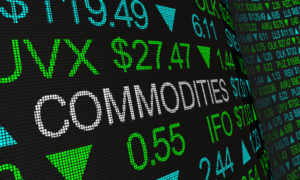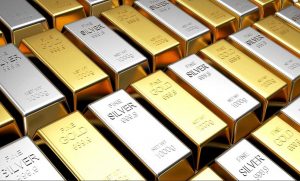Negotiating the realm of raw materials may be new to many of you, but in the end, doing so is very much like negotiating any other financial instrument. The first thing to decide is which broker you will use. There are CFD markets, futures markets, and a variety of options markets that can help you access commodity markets. To help you make this decision, just look at how much money you have available to negotiate.
Size Matters (When It Comes to Trading Raw Materials)
Size matters when it comes to raw materials. This is because of futures markets. Futures markets are defined contracts that give you the option to trade several raw materials. To place a transaction in the commodity market of your choice, you need to have the necessary amount of margin to open that position, just like in the Forex world. In this situation is where futures markets could be a little expensive for some people. While some raw materials are cheaper to trade than others, some raw materials require an initial margin of more than 5000 USD for a contract. Beyond that, standardized contracts mean there is only one tick value available. For example, if you sell crude oil, each tick is worth 12.50 USD. There are “mini contracts”, but they are usually not as liquid and are still very expensive for some traders.
This is where CFDs suppliers of raw materials come into play. These contracts allow you to negotiate less than one full contract, mainly because you are not actually operating in the futures market. You are negotiating a contract with your broker to pay or receive the difference between the opening price and the closing price. This is why your broker can offer the equivalent of 1 bale of wheat compared to the standard contract size, for example. In that sense, CFD brokers may be a good option to consider.
A final option may be to trade raw materials in the options markets, but lately, the options have been extraordinarily volatile and costly. Similarly, binary options have had a lot of bad press lately and, in general, can be extraordinarily dangerous because of the large amount of leverage they offer.
The Fundamental Factors Differ
Keep in mind that the fundamental factors in commodity markets can be quite different from the factors you are used to if you are a stock trader or foreign exchange trader. This is because these are real “things” and not necessarily about companies or economies. To take an example, several years ago there was a long series of floods along the Mississippi River and the surrounding area of the United States. This had a great effect on the price of wheat because of the floods they became a problem. The destruction of crops reduced the supply of wheat to the market, which naturally led to an increase in prices.
This is why so-called “soft” commodities in futures markets, which are usually products that grow on the ground, can be a little difficult for some traders to negotiate as weather patterns become very important. Usually, when a currency is traded, you don’t have to worry about the weather, unless there is some kind of anomaly like a tsunami in Japan. In general, climate rarely enters the equation for Forex traders. However, traders in agricultural raw materials trading in wheat, maize, soybeans, and many other products are totally dependent on weather reports.
Precious metals are also a completely different financial instrument, as they often react to interest rate expectations from the Federal Reserve. Similarly, the price of metals is directly affected by the strength of the dollar, as most of the larger precious metal markets are denominated in this currency. This is why it is very important that you have knowledge about how the US dollar has high volatility before trading in gold, silver, or other metals.
The Liquidity Varies
Another thing to consider when operating in commodity markets is the liquidity of the market where it is traded. The fact that your futures broker offers the wood markets does not mean that you should participate in them, as they are very illiquid and are usually used for hedging more than for anything else. This would not be the place for retail traders to participate. There is a contrast with the pair of EUR/USD and you can notice that there is a big difference between the opening and closing a position. Many retailers have been adversely affected by the lack of liquidity in a market they do not understand.
Stick With What’s Important
It’s really funny that I recommend this because I don’t think it’s the case in the currency markets, (although many traders will argue the opposite). This is because the commodity markets have variable liquidity and, if you are involved in a futures contract, that liquidity may hurt you, as the value of the tick may be extraordinarily large in some of these contracts. This is why typical retailers should trade assets such as crude oil, gold, silver, corn, wheat, soy, natural gas, etc. Participating in milk, wood or even palm oil may sound exotic and therefore intriguing, However, it’s an excellent way to lose money.
This does not mean that you cannot deal with these raw materials, but you only need to have the right account size, something that is within the reach of very few retailers. At the end of the day, it is better to stick to markets that are much more stable.
In Summary
Find a broker, one that hopefully is regulated by a strong market authority, or maybe use one that you already have and that offers CFDs markets. As a retail trader, it is much better to initially use the CFD markets, because you can trade penny-worth ticks, compared to those large positions that are required in some of the markets. Remember that technical analysis, to some extent, works the same in all markets. The more liquidity the market has, the more likely the analysis is to work. That is the beauty of some commodity markets like crude oil because they are highly technical in nature.
Fundamental analysis can also be important for the negotiation of raw materials, as mentioned above, and news can also be important. Agricultural markets obviously focus more on climate, while crude oil can focus more on the Middle East. Demand is also a determining factor in the prices of raw materials. Beyond that, I have discovered that commodity trading works in much the same way as foreign exchange trading and is an addition worth considering for your long-term trading plan.





